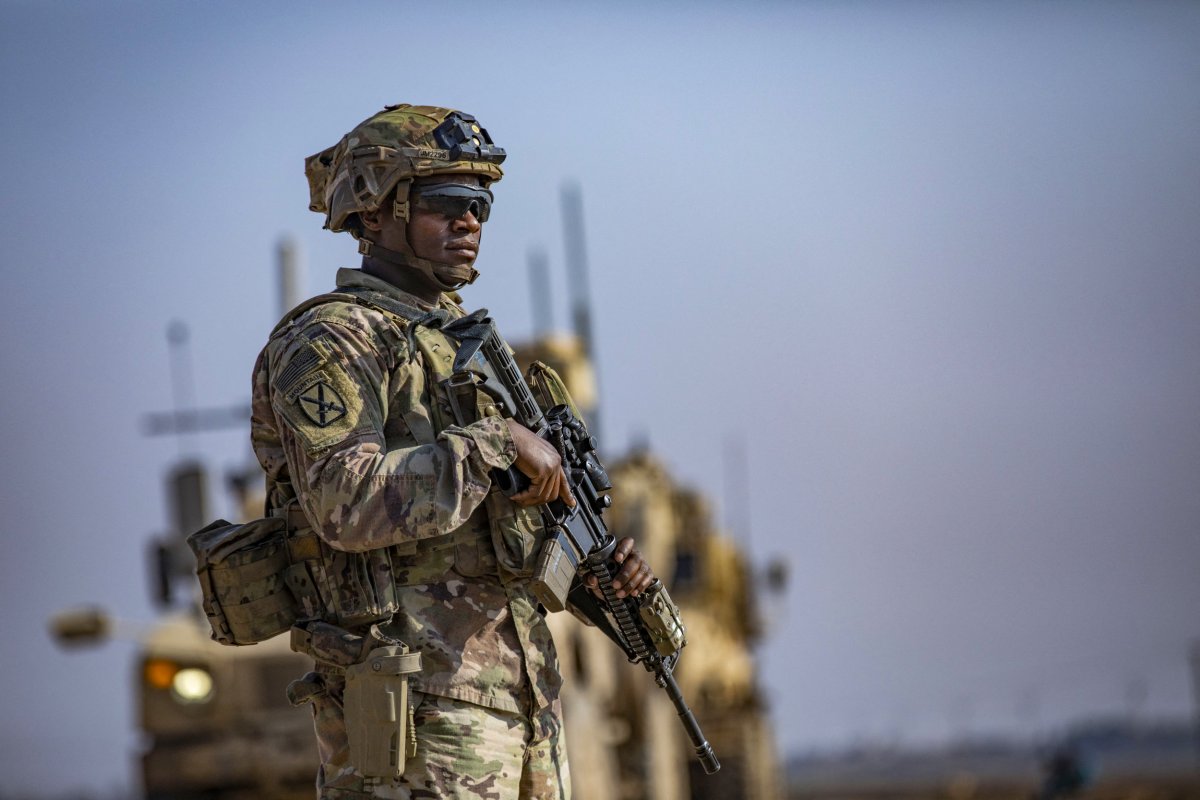Calls for ending American counterterrorism operations, or for reducing and eliminating the U.S. military footprint globally miss a basic problem about international relations: chaos and anarchy. Power abhors a vacuum, and a world without American leadership would not be a better world. The realistic alternative to U.S. global leadership—of which its military footprint is an essential part—is not some tranquil paradise of equality, social democracy, and hygge (cozy friendliness). It would be a return to zero-sum competition: violence and warfare among the great powers to determine who dictates the new rules.
Worse, without U.S. leaders using all available instruments of national power to defend the status quo, our digital age defined by a globalized, hyperconnected world—with highly competitive cyber and outer-space domains—would mean more conflict, land grabs, and the end of international laws and norms. The current rules-based order needs something or someone to defend it. Without a powerful hegemon to dictate—or at least coordinate—the rules among rising and declining powers, it would be a ravenous world positively rife with corruption, terror, neo- (and good-old-fashioned) imperialism, and the systematic deprivation of human and political rights. A world without an American presence would be dominated by authoritarians, such as China and/or Russia, with the willingness to use brute force and power to solve problems to the sole benefit of their nation. A world order dictated by either would only make the world safer for autocracy and more dangerous for liberal democracies.
The United States has arguably benefited the most from the international system it set up after World War II, but so has most of the rest of the world, as scholars such as G. John Ikenberry have argued. Within a system that also constrains the United States, other countries have flourished since 1945, and have done so without worrying whether the United States would conquer them or steal their resources. For sure, the U.S. engaged in its share of embarrassing behavior, such as Cold War-era covert regime changes; however, the nature of competition was contestation against the even more brutal Soviet Union. Since then, the U.S. has increasingly emphasized the liberal rules-based order and the need to follow international laws and norms. Critics of American military power rarely ponder what the world would look like if the Soviet Union had won the Cold War.
It is the United States' global military footprint that has played an essential role in buttressing this positive-sum economic order, subsidizing security for many countries—especially in Western Europe and the Asia-Pacific—so that they could focus on economic development and improve their citizens' lives. American security guarantees kept many authoritarian regimes at bay that were bent on enslaving peoples (both their own and others). The large, long-term presence of the U.S. in various parts of the world undergirds the broader liberal order whose institutions, norms, and rules prevent backsliding to the days of incessant great-power wars and imperialist carve-ups.

What would a 21st century without continued U.S. global leadership, supported by its military reach, look like? Dismal. The European Union and smaller democratic powers could pontificate all they want about human rights, universal values, and other ideals, but without an effective military at their disposal, it would be mere cheap talk. The realistic alternative to an American-led order is a world dominated by China and Russia. These two countries seek exploitative relationships—and Beijing and Moscow seek partnerships that reinforce authoritarianism. No one who believes in anything like human rights, social justice, or equality should find this prospect comforting.
For better or for worse, Washington is idealistically committed to a strategic vision of a liberal rules-based order where international laws and norms are promoted and upheld. Ultimately, the United States acts as a benign hegemon; numerous American sacrifices benefit global citizens that share a similar vision of democracy and freedom. While there is some merit in questioning why the U.S. has about 750 bases in over 80 countries, the premise that this represents some neo-capitalist empire misses the harsh reality that a more nefarious actor would fill this void more brutally.
The U.S. as a benign hegemon has not been perfect. Its invasions and occupations of Afghanistan and Iraq were full of mistakes; as the Brown University Watson Institute rightly noted, the costs of the post-9/11 wars now exceed $8 trillion. However, the actions of the U.S. were not done for traditional empire-building reasons, as past hegemons did, but to remove authoritarian governments that posed a threat to regional and international security.
To contextualize and truly understand U.S. foreign policy, one needs to appreciate U.S. behavior through the lens of a benign hegemon. America is not perfect, but until a viable alternative exists for coordinating international relations, we are much better off with the American-led rules-based system.
Dr. Brian C. Chao is an assistant professor at the U.S. Naval War College and non-resident associate of the University of Pennsylvania's Center for the Study of Contemporary China.
Lt. Col. Jahara "Franky" Matisek, PhD, is a military professor at the U.S. Naval War College and fellow with the Irregular Warfare Initiative.
The views expressed in this article are the writers' own.
Uncommon Knowledge
Newsweek is committed to challenging conventional wisdom and finding connections in the search for common ground.
Newsweek is committed to challenging conventional wisdom and finding connections in the search for common ground.
About the writer
To read how Newsweek uses AI as a newsroom tool, Click here.








